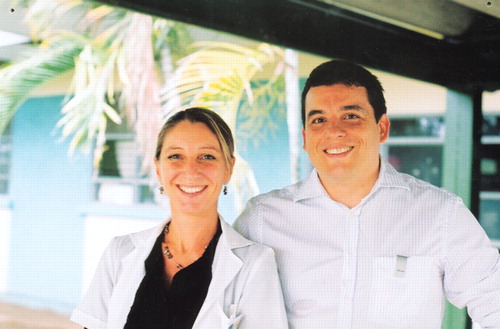Psychiatrists Shape Country's MH Research Agenda

Andrea Mesen, M.D., a young Costa Rican psychiatrist, is busy working in a private psychiatric practice, helping improve government-sponsored psychiatric care in Costa Rica, and teaching psychiatry courses at the University of Costa Rica. But his top priority, he stressed in an interview with Psychiatric News, is conducting psychiatric research.
For the past nine years, he, along with Costa Rican and American colleagues, has amassed genetic information about some 2,000 Costa Ricans whose family pedigrees contain a number of cases of schizophrenia. Most of the subjects come from the Central Valley region of Costa Rica. Their ancestors were Spaniards who lived isolated in that region for some 400 years, that is, since the 16th century, when Spaniards settled the region. Thus, while they are not as homogenous as the Icelandic people, for example, they are fairly homogenous and thus a rich genetic pool in which to search for genes linked to schizophrenia.
Mesen and his co-workers have published three reports of their findings to date. Their principal finding is that there is a region on chromosome 5 that appears to be implicated in schizophrenia cases in these families. A related region on that chromosome has also been linked with schizophrenia in some Puerto Rican families, Mesen said.
Currently Mesen and his colleagues are performing MRI scans and neurophysiological tests on a number of their subjects, as well as on controls, in hopes of pinpointing brain peculiarities that might reflect a genetic pre-disposition to schizophrenia. “We are the first to ever do this in Costa Rica,” he said.
During the past four years, Mesen has received funds to finance his research from two American sources—the National Alliance for Research on Schizophrenia and Depression and the Pritzker Neuropsychiatric Disorders Research Consortium. He is grateful for their contributions, especially as there is no money available for such research in Costa Rica.
Still another challenge to conducting schizophrenia research in Costa Rica, he pointed out, comes from Costa Ricans who believe that persons with a serious mental illness do not have the mental capacity to participate in research. Mesen strongly disagrees with this position: “For nine years, I have been visiting schizophrenia patients in their homes to conduct my research. I know their reality, I can talk with them, I respect them as individuals. And I believe that they have the same right as you and I do to participate in research.”
Mesen also takes issue with the position of some Costa Ricans that Costa Rica should leave psychiatric research to the United States and European countries. “We especially need to undertake our own psychiatric epidemiological studies,” he contended, “because epidemiological studies help with psychiatric service planning and can be used to lobby for government funds for psychiatric care.” For example, Costa Rican psychiatrists can only guess at the prevalence of various mental disorders in their country because a prevalence study has never been conducted.
All in all, Mesen concluded, “We need to develop our own research ideas, our own research culture, and our own research projects. And I assure you that we take American medical research laws, as well as Costa Rican ones, into consideration when conducting our research.” ▪



